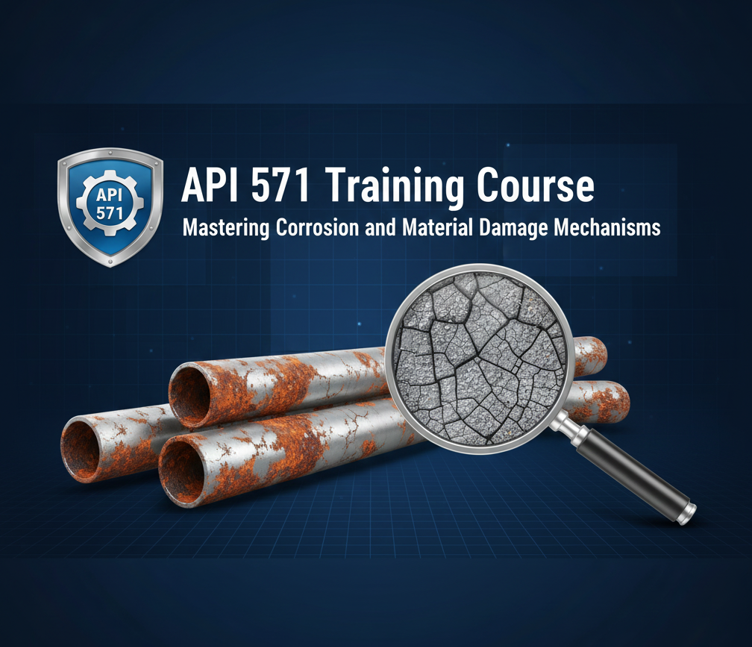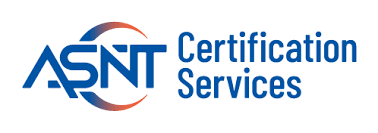How to Prepare for API 571 Certification?
Understand the Standard: It will be most beneficial to your situation if you become accustomed to the API 571 guidelines.
Enroll in a Training Program: Select from one of the trusted providers of such services as oilandgasclub.com.
Study Regularly: Spend your time studying the courses, memorizing the material and reviewing it.
Practice with Mock Exams: Tackles test worry and check your grasp of exam preparedness.
Stay Updated: Schedule yourself to stay abreast with the new trends and research finding on the subject of corrosion.
Future Trends in Corrosion and Material Damage Management
1. AI and Machine Learning
Sophisticated computation methodologies for corrosion and damage mechanisms’ forecasting.
2. Smart Sensors
The real- time management of material conditions to ensure that failure is not observed.
3. Eco-Friendly Solutions
Development of new material types and coated components.
4. Integrated Asset Management
Combined methods of inspection of the building and its elements, maintenance, and risk evaluation.
What is API 571?
API 571 is the standard by the American Petroleum Institute used in assessing damage mechanisms on fixed equipment in refineries. These mechanisms are guidelines that show how best to assess, control, and eliminate them to maintain security and productivity when operating.
The API 571 training course is designed to give professionals the knowledge on how to apply these guidelines outright in the field.
Complete Oil and Gas Industry Practical Training Course
Complete Oil and Gas Industry Practical Training Course is a self-learning, practical program powered by industry expertise. Log in to explore, practice real scenarios, and grow industry-ready skills.
- pipenet
- pipesim
- HTRI
- olga
Who Should Attend API 571 Training?
The API 571 training course is ideal for:
Inspection Engineers: Enhance your ability to identify and assess damage mechanisms.
Maintenance Professionals: Develop strategies for preventing equipment failures.
Corrosion Specialists: Deepen your expertise in material degradation.
Plant Managers and Supervisors: Gain insights into operational risks and mitigation techniques.
Engineers and Technicians: Build a solid foundation in corrosion mechanisms and protection.
Benefits of API 571 Certification
1. Industry Recognition
API 571 certification is accredited internationally, that proving one’s proficiency in corrosion and material loss processes.
2. Enhanced Career Prospects
Specialists are well paid and the job opportunities are available in oil and gas, petrochemicals and power plants sectors.
3. Operational Excellence
Utilize what you have learned for increasing equipment reliability and decreasing the downtime.
4. Professional Development
Learn the new developments in corrosion science and technological practices in inspection.
Key Components of the API 571 Training Course
1. Toward the Recognition of the Modes of Damage
Identification of the number and type of corrosion and damage mechanisms.
Influences on the associated mechanics, relating to the choice of materials and the conditions of operation.
2. Selection of material and prevention from damage
Oregon Criteria for selecting corrosion-resistant materials.
Surface protectants and retarded action chemical to avoid the deterioration of metals.
3. With reference to the above papers, the following generalised inspection and monitoring techniques can be identified:
Non-destructive testing (NDT) technique such as radiographic examination, ultrasonic examination and surface examination.
The electronics of patient status for advanced warning signs.
4. Real Cases and Implementations
Examples of how damage mechanisms manifest in real life situations.
Measures of avoiding and minimizing risks.
Complete Oil and Gas Industry Practical Training Course
Complete Oil and Gas Industry Practical Training Course is a self-learning, practical program powered by industry expertise. Log in to explore, practice real scenarios, and grow industry-ready skills.
- pipenet
- pipesim
- HTRI
- olga
Why Choose oilandgasclub.com for API 571 Training?
Training include Program Management, Contract Management, Project Management Training for the oil and gas industry offered at oilandgasclub.com. Our API 571 training course includes:
Expert Instructors: The students will be taught by experienced professionals who already have good understanding of the industry.
Comprehensive Curriculum: The best known information sources covering all aspects of the API 571 standard.
Interactive Learning: Involving classes accompanied by exercises and I/O sessions with realistic examples.
Flexible Options: Training that takes place through the use of computers/ laptop and face to face to ensure flexibility.
Global Certification: Achieve qualifications that are credited across the globe.
Importance of API 571 Training
1. Improvement on Corrosion Rates Understanding
Gain a detailed understanding of over 60 damage mechanisms, including:
Sulfide Stress Cracking (SSC)
One of the longitudinal types of pressure vessel steel failures is Hydrogen-Induced Cracking (HIC).
High Temperature Hydrogen Attack or Hydrogen Induced Cracking (HIC)
Pitting and Crevice Corrosion
2. Better Ways of Carrying Out Inspection and Maintenance
For one, how do you know that a material’s life span is almost over and needs replacement before becoming a complete failure?
3. Meeting Industrial Requirement
They should stick to the API guidelines in an effort to enhance the effectiveness of operation as well as meet legal demands.
4. Career Advancement
Increase your marketable skills at work and gain promotions to higher levels of inspection, maintenance, and asset integrity.
Course Structure and Content
1. Introduction to API 571
Outline of the standard and why it is important.
2. Damage Mechanisms
Discussion and conceptual descriptions of different corrosion forms and material deterioration modes.
3. Assessment and Mitigation
Methods for assessment and management of material degradations.
4. Practical Exercises
Practical exercises that underscore the concept and its practical usage.
5. Previous Years’ Papers and Certification Exam Sample Papers
Resources for the API 571 certification test preparation in order to pass practice tests.
Complete Oil and Gas Industry Practical Training Course
Complete Oil and Gas Industry Practical Training Course is a self-learning, practical program powered by industry expertise. Log in to explore, practice real scenarios, and grow industry-ready skills.
- pipenet
- pipesim
- HTRI
- olga
Conclusion
The API 571 training course is an investment for anyone who wants to build on their knowledge of corrosion and material damage mechanisms. Once you have passed this standard, you could make a positive difference to the safety and efficiency of each operation of the industrial world and take a leap forward in the fascinating world of non-destructive testing and asset integrity management.
Register for the API 571 training course from oilandgasclub.com and kick start your course to become an expert in corrosion and material damage mechanism. Prepare yourself and acquire tools, knowledge, and skills that can bring great improvement on the oil and gas industry.









